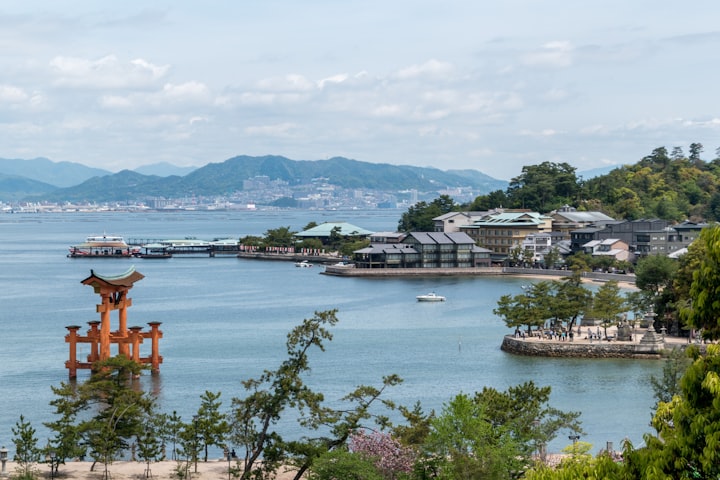United Nations fourth conference on women
Conference on women

The delegates agreed that highlighting the status of women will be critical in addressing issues such as demographic change, environmental degradation, and sustainable economic development. The Beijing Conference has produced a Platform for Action that focuses on promoting women's equality, sustainable development, and peace. Delegates have prepared a Platform for Action aimed at equal opportunities for women around the world.
Four women's conferences were held around the world: Mexico City (1975), Copenhagen (1980), Nairobi (1985), and Beijing (1995). The Fourth World Women's Conference in Beijing in 1995 marked a significant change in the global system of gender equality. In Mexico City, three previous international conferences were held - 1975 International Women's Year, Copenhagen in 1980, and Nairobi in 1985 - in Mexico City.
In shaping the work of previous conferences from 1975, 1980, and 1985, the United Nations Decade for Women and the Fourth United Nations Women's Conference produced the Beijing Platform for Action, which is considered a major international commitment to women's rights. Patricia Licuanan, a member of the National Council and chair of the Beijing General Assembly, wrote the Beijing Declaration on the Advancement of Women. The declaration was adopted by 189 countries as a women's empowerment agenda and is regarded as an important document of global strategies for gender equality.
The Fourth World Conference on Women was the largest conference hosted by the United Nations and the largest conference ever hosted by the Chinese government. In 1995, the Beijing Summit was built on political agreements reached by three previous international women's conferences and focused on fifty years of legal progress aimed at ensuring equality between women and men in law and practice. The Beijing Declaration and the Platform of Action adopted at the conference were important milestones in the history of women's global development.
The Beijing Declaration and the Platform for Action adopted by the Conference will have a positive and profound impact on promoting equality between men and women, enhancing the status of women, and ensuring peace and development in the new century. The Declaration embodies the international community's commitment to the advancement of women, and the implementation of the Platform will ensure that gender perspectives are reflected in policies and programs at the national, regional, and international levels. The Beijing Declaration on Indigenous Women, signed by a non-governmental forum for Indigenous Women Tents, provides a reason and a clear request for government to take action to address traditional issues around the world.
Agenda for Action is an action platform aimed at promoting and protecting women's full enjoyment of human rights and fundamental freedoms throughout their lives. As required by the Beijing Declaration on Indigenous Women signed by the Indigenous Women's Forum at the Indigenous Women's Tent, all governments and non-governmental organizations around the world must recognize the right of indigenous peoples to be independent and incorporate the historical, political, social, cultural, economic and religious rights of indigenous peoples into their constitution.
Following the resolution of the General Assembly in July 2020, a high-level meeting of the National Assembly was held on October 1, 2020. The session focused on the common theme "Accelerating the achievement of gender equality and the empowerment of women and girls." The conference reviewed and evaluated the implementation of the Future Plan for the Development of Women in Nairobi and drafted and adopted the Beijing Declaration and Platform of Action to accelerate the implementation of the Nairobi Women's Future Development Strategy.
The World Women's Tenth Conference (4WCW) was the culmination of decades of work by governments and non-governmental organizations (NGOs) to promote the inclusion of women in all spheres of government and society. The conference identified major obstacles to the advancement of women's status in the world and adopted strategic goals and concrete steps to end them.
After World War II, the world came together as a United Nations (UN) to work together for the benefit of all nations and their peoples. In 1972, the UN General Assembly declared 1975 as International Women's Year and commemorated the International Women's Conference in Mexico City as the First International Conference on Women. Members of Soroptimist International stand as part of the NGO community and participate in every way possible to ensure that important issues for women and girls are included in the Beijing Platform for Action (BPFA) which became a global gender equality guide.
From the outset, the International Women's Summit focused on issues of equality, development, and peace. The Fourth World Conference on Women was reviewed in Nairobi in 2000 and reviewed strategies to empower women in the city in 2000 in line with these issues due to changing world conditions, such as the end of the Cold War, progress in democracy, and increasing poverty. The Summit sets out strategic priorities for the remaining five years until the year 2000.
Today, I will participate in a World Health Organization forum on how government officials, non-governmental organizations, and individual citizens can work together to address the health issues of women and girls. Tomorrow, I will be attending a United Nations Development Fund meeting. This discussion will focus on effective local programs that give working women access to credit to improve their lives and the lives of their families.
When the UN Commission on the Status of Women (CSW) reviewed the progress documents since the 1985 Nairobi World Summit in 1990, it concluded that legal equality had been achieved but not real equality. This gave CSW the impetus to do something brilliant: it decided to organize the Fourth World Conference on Women as one focused on priorities and strategic action goals. I was the Philippine representative, vice-chairman, and chairman of the CSWs Conference Planning Commission.
About the Creator
Radha Karki
I am very curious ar learning new things, love to read books, paintings, art, and love singing too.





Comments
There are no comments for this story
Be the first to respond and start the conversation.